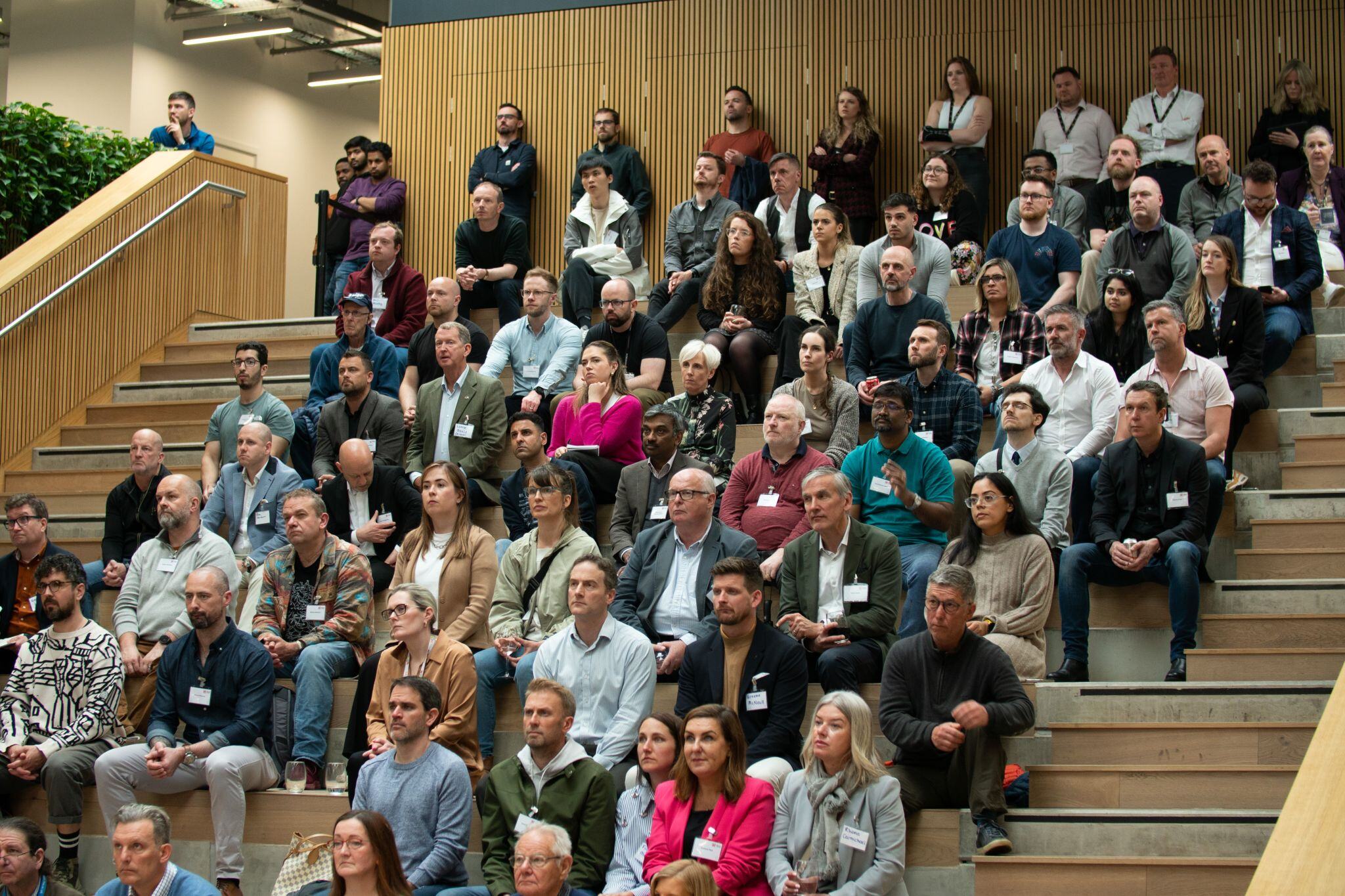Home / Our thinking / Insights / The premiere of 'AI and Robotics: A Near Future You're Not Prepared For'
The premiere of 'AI and Robotics: A Near Future You're Not Prepared For'

Table of contents
Listen to this article
On the 23rd of May, Nash Squared premiered our latest documentary in the ‘Tech Flix’ series at the National Robotarium, just outside Edinburgh. This third edition was titled, ‘AI and Robotics: A Near Future You’re Not Prepared For’ and explored the issues facing digital leaders looking to adopt automation with analysis from across the sector.
Whilst the film itself will be released later in the summer after further screenings in New York and London, a local panel of experts added a huge amount of context and detail following the credits.

Joining Cameron Macgrain (Harvey Nash Regional Director) on the panel were Gary Crawford (Waracle), Kjersti Ferguson (Scottish Government), Samantha Rhynas (Effini), Graham Hosking (Quorum Cyber) and Angus Allan (xDesign).
So, what were the key discussion points in the room when the credits started to roll?
Unsurprisingly one of the key themes was the need to maintain the human element in decision-making. Angus Allan was at pains to stress the point. In fact, human qualities appear to be hugely important when dealing with AI.
We know that AI is prone to hallucinating and therefore spreading misinformation. When we encounter another person doing that, we spot it and we are sceptical, but we fail to look at the results we are getting from GenAI tools in anything more than binary: yes or no, or right and wrong.
Kjersti also made the point that we spend rather too much time worrying about AI’s impact on humans and society, and not enough on how we actually want to use it.
Another topic of discussion was policy and regulation; but through the prism of its impact on innovation. Gary pointed out that it was crucial to ensure innovative ideas were not constrained. There was clear concern amongst the panel that due to the rate of change, organisations needed to consider building flexibility into their policies to respond to a rapidly evolving technology landscape.
Graham also added that none of this is new, so we really cannot afford to wait for the government, and we should have the policies in place already!
Data governance was raised, as was the need to ensure we only use AI where it helps. Both points rely on education and understanding of the challenges presented.
One terrifying thought highlighted, was that we are moving from an attention economy to a relationship economy, where the public might view AI as a friend.
Given its intentions will always have another purpose behind them, owned elsewhere, that is a real concern; especially for parents trying to navigate technology with impressionable children.
Samantha also made the point that just because someone might have experience working as a technology professional, or as an engineer, it does not mean you are an expert in AI. It is a point that underscores that this really is an area where there are still many more questions than answers.
It all begs the question, what are the biggest questions you have concerning the adoption of AI in business, and do you feel prepared?
About the author:
David Savage is the Group Technology Evangelist for our parent company, Nash Squared. He has a deep understanding of the technology and talent markets and spends his time crafting podcasts, hosting video debates, speaking, moderating conferences, and chairing keynote stages.
Since 2017, he has been the editor and host of Tech Talks, a show about leadership and technology currently ranked as one of the most popular podcasts in the world.
Suggested articles
What makes for an effective AI policy?
Nash Squared CIO, Ankur Anand, looks at what different components you need for a good AI policy. This article first appeared on boardagenda.com.

Is the technology agenda on the back burner? Where to from here?
With the amount of technological and systemic changes occurring in the tertiary and higher education level sectors since the outbreak of COVID-19,...

Cyber threats shift: AI and quantum rise as reported attacks decline
Nash Squared CISO, Jim Tiller, talks about the surprising cyberattack data in our 2023 Digital Leadership Report, what might be behind it and what to...